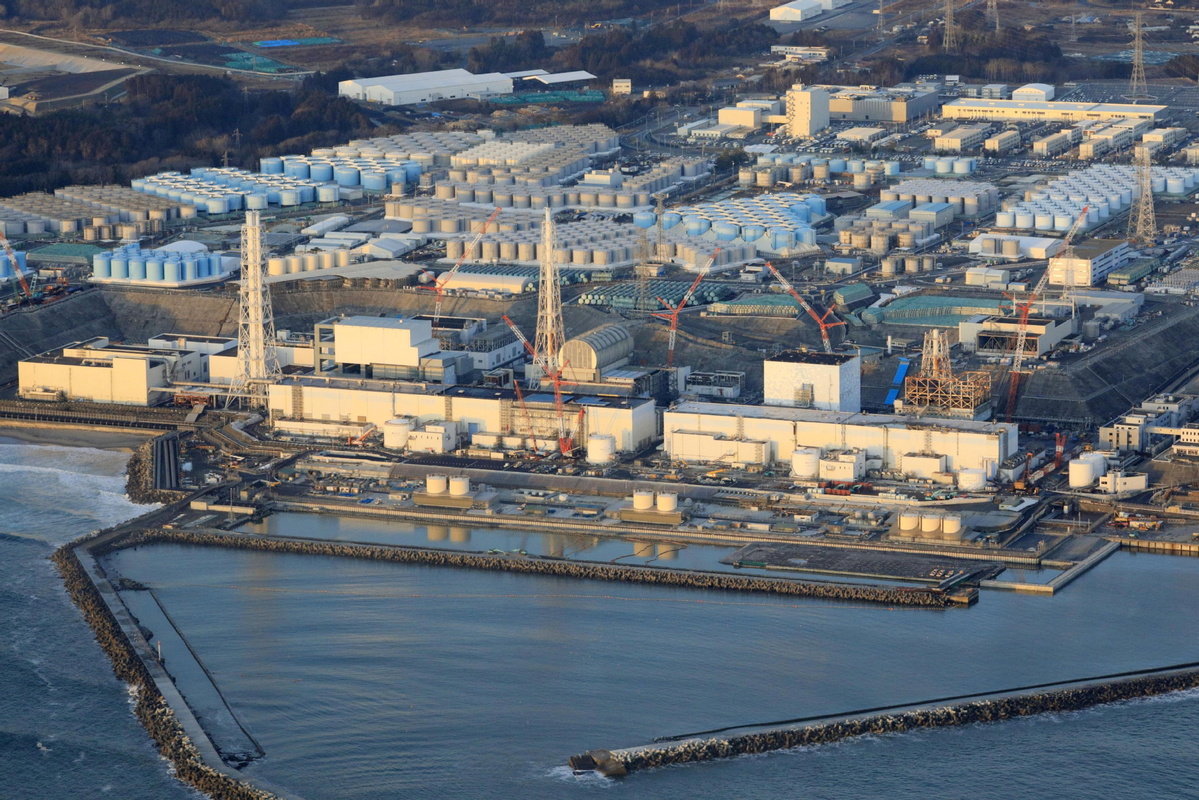Japan to decide on sea release of reactor water


A long-debated decision on whether Japan will dump into the sea more than 1 million tons of contaminated water from the crippled Fukushima Daiichi nuclear plant is on course to come as early as next week.
National broadcaster NHK gave the time projection on Thursday. "Officials are likely to take the option of discharging it (the contaminated water) into the sea," its report said of the scenario that is also worrying people in China and South Korea.
On Wednesday, Japanese Prime Minister Yoshihide Suga told reporters that "I want to make a decision in a few days", after meeting with Hiroshi Kishi, the head of Japan's National Federation of Fisheries Cooperative Associations.
As one of the firmest critics of a proposal for the ocean release of the water, Kishi said his organization "had no change at all to our absolute opposition to the idea".
However, Kishi acknowledges that "there would be reputational damage regardless of how the water will be disposed of, whether into the sea or into the air".
"I want the government to clarify how it intends to respond to such reputational damage," he said.
According to Japanese authorities briefed on the process, the release of the contaminated water into the Pacific Ocean is the only viable option. The water would be treated with an advanced liquid-processing system to remove most contaminants. The process, however, cannot remove tritium, a radioactive isotope of hydrogen, the lightest element.

Japan insists that dumping tritium-laced water into the ocean is a common practice at nuclear reactors around the world. The residents of tsunami-hit Fukushima, Japanese fishermen and the people of neighboring countries are unconvinced.
Import restrictions
More than 15 countries and regions still restrict imports of Japanese agricultural and fishery products 10 years after the Fukushima nuclear crisis, which was caused by a devastating earthquake and tsunami in 2011.
After the meltdowns, thousands of tons of water were pumped into the reactors as coolant and the plant operator, Tokyo Electric Power, has since stored the water in tanks at the site.
The Japanese government said the storage capacity would run out by the fall of 2022, and with years needed to build equipment to discharge the water, a decision on how to handle it has become urgent.
Scientists advising the Japanese government initially proposed a range of options for the contaminated water, including evaporation or underground reservoirs. Dumping the water in the ocean was judged the cheapest way.
"We know that handling of this water is a pressing problem, but if the water is released into the ocean, all the effort we fishermen took to recover from the Fukushima disaster will be meaningless," said Eguchi, a fisherman in Fukushima.

































